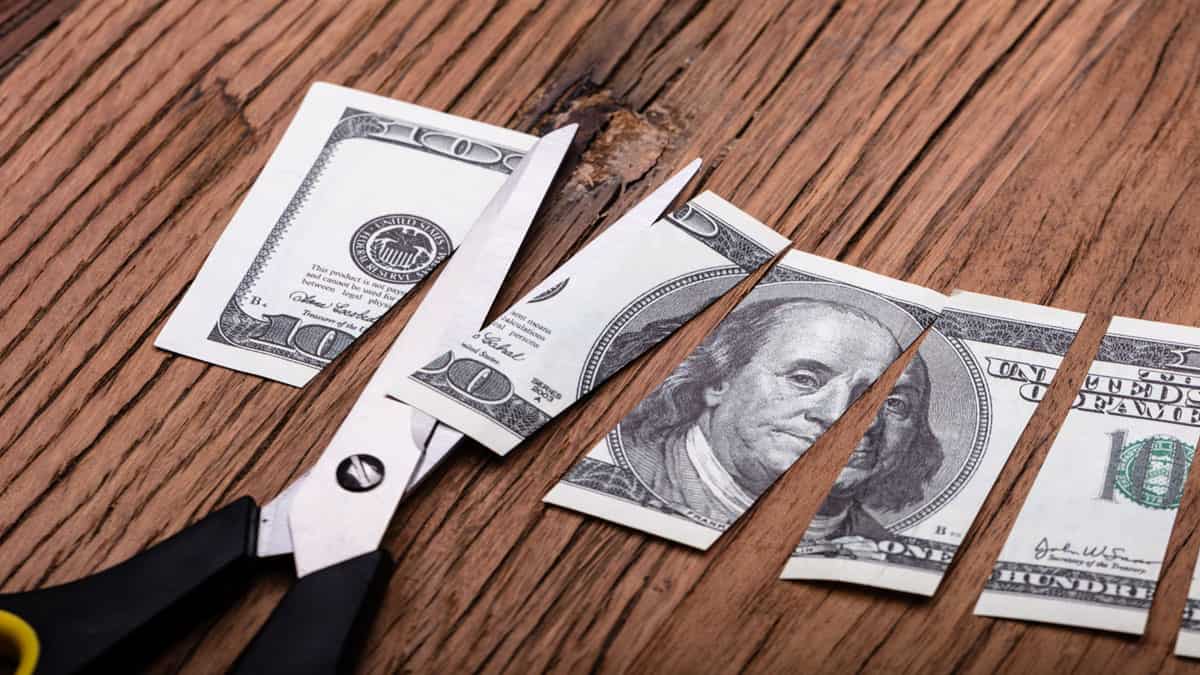THIS POST MAY CONTAIN AFFILIATE LINKS. PLEASE SEE MY DISCLOSURES. FOR MORE INFORMATION.
Welcome, my fellow budget-savvy consumers!
Are you tired of scouring the internet for money-saving tips that end up being more work than they’re worth?
As a self-proclaimed frugalista, I know the importance of finding ways to save money and make the most out of every penny.
But let’s face it, not all money-saving hacks are created equally.
That’s why today, I’m here to debunk 14 commonly suggested money-saving tips that may seem like a good idea at first glance, but in reality, are just not worth your time.
So grab your favorite beverage and get ready to learn which so-called “money saving” tactics you can ditch for good.
Let’s get started!
#1. Spending Money at Local or Online Auctions

Local and online auctions can be a great way to find a deal for things you need.
But like shopping all sales, many people don’t buy things they need.
Don’t fall into the trap of getting addicted to these auctions and spending money unnecessarily.
#2. Cutting Out Any Joy in Life to Save Money

Too many people will go out of their way to save money to the degree that they only spend on the bare necessities.
Often, this leaves them feeling miserable and stressed out as they emphasize not spending anything on themselves.
If you’re budgeting to the degree that you’ve cut out all joy in your life, it’s time to reevaluate your spending habits.
#3. Not Thinking About Time in Relationship to Money

Some deals can be good, but they’re not worth driving an hour away.
It’s also essential to think of how time relates to your money.
There’s no point in spending all day trying to save a few dollars.
Only exert time and energy on deals that are worth it.
#4. Buying Too Much Into DIY Culture

DIY culture can be great, but it isn’t always.
For example, you can fix your coffee table, but there’s no guarantee that you can repair your electrical system or your car.
If you dive too deep into DIY culture, you can end up causing irreparable damage that costs you even more time and money than if you were to spend money on the repairs in the first place.
#5. Turning Grocery Shopping Into a Part-Time Job for the Deals

Extreme couponing has certainly become a thing, and it can be crazy.
Many don’t see the value in driving around for hours, constantly clipping coupons, and spending tens of hours a week to get the latest deals.
Spending a bit more to maintain your sanity might be worth it.
#6. Trying to Low-Ball People on Deals

Nothing is worse than meeting someone to buy something you found online and then lowballing them.
It not only wastes your time but theirs, too.
While haggling is a part of selling things online, you should try to spend less than you agreed to.
#7. Buying Products That Are Too Cheap

Good deals are only good deals if the product is good.
Take, for example, things like cheap shoes falling apart after a month or kitchenware crumbling after a single use.
If you have to spend money to replace super cheap items consistently, you’re not being financially savvy.
#8. Chasing Very Minor Interest Rates

Putting your cash in a high-yield savings account can be an excellent idea.
However, some people will take advantage of any interest rate, no matter how small.
If it won’t give you more than a couple of dollars over a year, your money is not being put to good use.
#9. Buying Perishables in Bulk

Buying in bulk can be a good idea when purchasing something that will last throughout the year and save you money.
Are you buying perishables in bulk?
That will typically leave you with something you’re unable to consume that you’ll waste the bulk of.
#10. Trying to Live Your Life on Off-Peak Hours

Peak hours can raise your electric bill as you consume more energy during the most expensive parts of the day.
However, some people think it’s worth restructuring their lives to try to do things when they should be working or otherwise getting other tasks done.
While getting things done during off-peak hours might help you save some, you shouldn’t sweat it if you can’t make it happen all the time.
#11. Prioritizing Debt Over Saving (or Vice Versa)

Paying down debt and saving are both important.
While you might not have an extensive budget to manage both easily, you should tackle both to prepare ahead.
Putting all your resources into one or the other can quickly become messy.
#12. Spending Money on Available Deals

Just because there’s a deal nearby doesn’t mean you have to buy it.
However, some will become so focused on sales that they spend money on things they wouldn’t just because it’s a good deal, counteracting the benefits of leveraging discounts to their advantage.
Always ask, is this a good deal, or am I just spending money I wouldn’t otherwise be spending on products I don’t need?
#13. Thinking That Thrift Shopping Will Save You Money

Thrift shopping is not what it used to be.
You might find a good deal here and there, but flippers have driven up prices significantly as thrift stores seek to take advantage of this side hustle.
If you must thrift shop, go to smaller businesses that aren’t so known or visited.
#14. Investing in Cheap Appliances

Cheap appliances are rarely an asset.
They might use more energy, work less efficiently, and break down significantly faster than their more expensive counterparts.
Never cheap out on appliances. Good ones will be far more beneficial on your budget than bad ones.
How To Save Money When You’re Broke

When you have no money, the idea of saving sounds impossible. In fact, for many people, the idea never crosses their mind because they are only focused on getting money to survive.
But there are steps you can take to actually save money even when you are broke. Doing so will help you change your financial life faster than you thought possible.
HOW TO SAVE MONEY WHEN YOU’RE BROKE
Save Money On Groceries

It’s no secret that grocery shopping is a significant expense every month. While most of us know a few ways to reduce this bill, there are many other simple things we can do.
Learn the easy tricks to spend less on groceries and pocket some savings.
LEARN HOW TO SPEND LESS MONEY ON GROCERIES
Slash Your Monthly Bills

With inflation rising, your monthly bills are likely getting out of control. Luckily, there are some simple steps you can take. Use this guide to help you save up to $7,000 a year on your monthly bills.
SLASH YOUR MONTHLY BILLS AND SAVE
15 Gas Hacks For Free Gas

You’ve probably wished you could get free gasoline, but thought that was impossible. But the reality is, it isn’t impossible.
There are many free gas hacks you can use to save money on fuel ups. Here are 15 ways to lower the cost of gasoline, and in effect, get free gas.
15 FREE GAS HACKS YOU NEED TO TRY
How To Start Over Financially At 50

It can be difficult to start over financially at any age. But when you are 50, there is added pressure.
Not only do you have a limited number of working years left, but you also see how well others in your peer group are doing.
If you are starting over at 50, don’t give up hope. Here is how to drastically improve your finances.
HOW TO START OVER FINANCIALLY AT 50
This thread inspired this article.
I have over 15 years experience in the financial services industry and 20 years investing in the stock market. I have both my undergrad and graduate degrees in Finance, and am FINRA Series 65 licensed and have a Certificate in Financial Planning.
Visit my About Me page to learn more about me and why I am your trusted personal finance expert.

